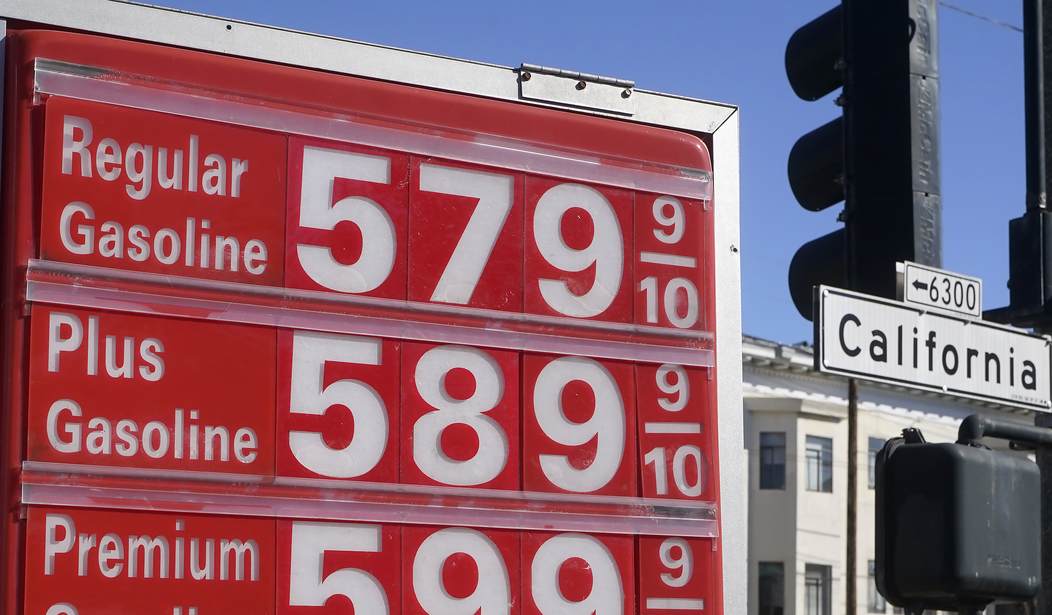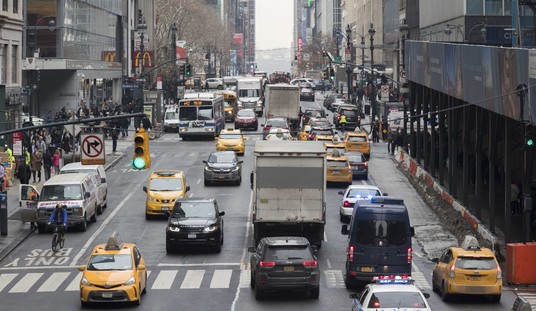Normally, when we hear a story about unwanted crossings on America’s southern border we’re talking about illegal aliens swarming northward. Today’s story flips the script on that pattern because it’s a case of the Mexican government complaining about Americans crossing over from the north. These aren’t illegal aliens, however. They’re Americans, primarily from California, who are making a run for the border to escape the Golden State’s skyrocketing gasoline prices. The cost in Tijuana is less than half of what’s being charged in San Diego, so it was worth the trip for many motorists. But that’s all coming to an end now. The Mexican government announced this weekend that they are ending the government subsidies that have been in place for months, at least in the border region. (Reuters)
Mexico, which has been subsidizing gasoline to soften price spikes, said on Saturday the policy would not apply in the U.S. border region this week, citing shortages as more Americans drive south to fill their tanks.
The suspension of the subsidy from April 2-8 covers cities in the border states of Tamaulipas, Nuevo Leon, Coahuila, Chihuahua, Sonora and Baja California, including Tijuana, one of the world’s busiest border crossings.
Mexico’s finance ministry said in a statement there was a gasoline shortage in the area “from an imbalance between supply and demand.”
There were so many Americans crossing into Tijuana to fill up their tanks that the gas stations there were running out of fuel. Residents were complaining about the waiting lines at the gas stations so the administration of President Andres Manuel Lopez Obrador decided that something had to be done.
The oil companies in Mexico are controlled by the state, and they had been seeing some hefty profits as the cost of oil surged to more than 100 dollars per barrel. Petróleos Mexicanos (Pemex) is one of the largest oil and gas companies in the world, so its cash flow is considerable. When the sale price of oil jumped upward massively, AMLO declared that part of those increased profits would be pumped back into the system in the form of subsidies to keep the prices for consumers low.
What he apparently didn’t anticipate was a flood of Americans surging into his country and draining the gas stations dry. Fortunately for Mexican drivers, the lifting of the subsidies will only happen in a thin band along the border. Nobody is going to drive even further into Mexico to fill up if they have to use most of a tank of gas just to make the trip.
It was apparently viewed by Mexican officials to be impractical to impose some sort of ban on gas sales to cars with American plates or a higher price for foreign vehicles. That could discourage tourism, which the northern part of Mexico, in particular, relies on heavily. And the tourism industry there still hasn’t fully recovered from the travel bans during the pandemic. With that in mind, lifting the sanctions in the region probably looked like the only option.
There may be one other problem on the horizon that could be driven by these high prices. Given the endemic nature of Mexico’s problems with the gangs and cartels that control the flow of illegal drugs, how long will it be before we start seeing gasoline shipments being hijacked? Gasoline is quickly becoming nearly as profitable of a commodity as cocaine. And if there’s a way to turn a profit off of it, the cartels will figure out a way to do it.








Join the conversation as a VIP Member